EU referendum highlights Labour's fears
- Published
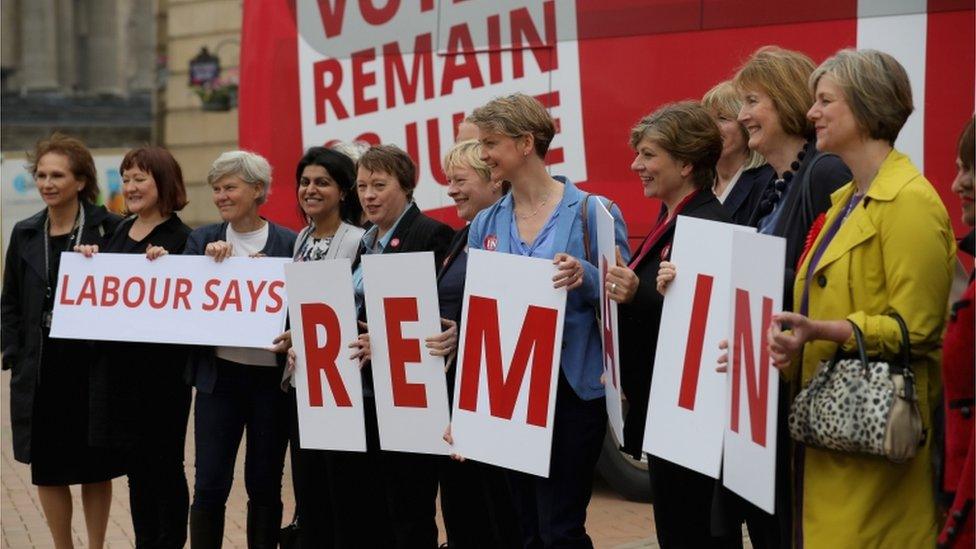
A majority of Labour MPs favours a Remain vote
The EU referendum campaign is exposing the cracks and fissures in both major parties.
The Remain camp understands it cannot secure victory without the support of Labour's natural supporters. Yet in the past few days there has been the whiff of panic, with senior Labour officials warning that its traditional voters are "haemorrhaging" towards the Leave campaign.
As of last week, four of 10 Labour supporters, external, apparently, still had no idea which way the party wants them to vote.
So, once again, at referendum time the party has turned to former Prime Minister Gordon Brown to fire up Labour's nine million voters. The party is gambling that he can reach parts of the working class that other politicians can't.
EU referendum: All you need to know
Jeremy Corbyn, who will be making a major speech on Tuesday, is perceived by some within his party as detached and lukewarm about the EU. He grades his support for staying in the EU as 7-7.5 out of 10.
Jeremy Corbyn said he rated his passion for continued EU membership at "seven or seven and a half out of 10"
Mr Brown's pitch is what a reformed EU will do for working people. It is, he argues, a force for workers' rights: "Europe has been responsible for the social chapter which has guaranteed maternity pay, holiday pay, a consultation for workers."
Key Labour figures are increasingly referring to "Brexit" as "Tory Brexit". The Labour message until polling day will be that voting Leave risks handing power to a right-wing Eurosceptic government.
Core message
But what the referendum is doing is turning the spotlight once again on Labour's dilemma - what is its identity and core message?
Is it a protest movement, a backer of causes or potentially a party of government? Can it be a party of economic competence and a champion of social justice?
The referendum comes at a time when the party is still looking inwards, wrestling with the defection of many traditional supporters to UKIP.

Jon Cruddas fears that Labour is failing to connect with working people
The opposition whip Conor McGinn says many of Labour's natural allies "don't feel that anyone listens to them, never mind speaks to them". He talks of a party "preoccupied with things that are insignificant to the population".
The Fabian Society says Labour is struggling to attract working class voters.
An inquiry, external by Labour MP Jon Cruddas concluded that the party was at risk of becoming "irrelevant to the majority of working people".
He argued that the party "must stop patronising socially conservative UKIP voters and recognise the way in which UKIP appeals to former voters".
He warned of the risks of a party not listening to concerns about welfare, benefits, Europe and immigration.
Now with the referendum appearing to be on a knife-edge these voters are needed by the Remain camp. Can Mr Brown, steeped in Labour's history, rally them to the Remain cause?
Across Europe there is evidence of the alienation of working people from traditional and mainstream politics.
Traditional loyalties
Loyalty to traditional parties has weakened. Politics is consumed with people unafraid to experiment and sample the new.
Social media amplifies the appeal of the upstart, the political outsider, the anti-establishment movements.
In France, where union membership has fallen to 8%, Marine Le Pen has built her base by directing her fire not just at the levels of migration but at globalisation.
Her appeal, although it is not defined like this, is to globalisation's losers. So former communists and socialists have been drawn into the ranks of the National Front.
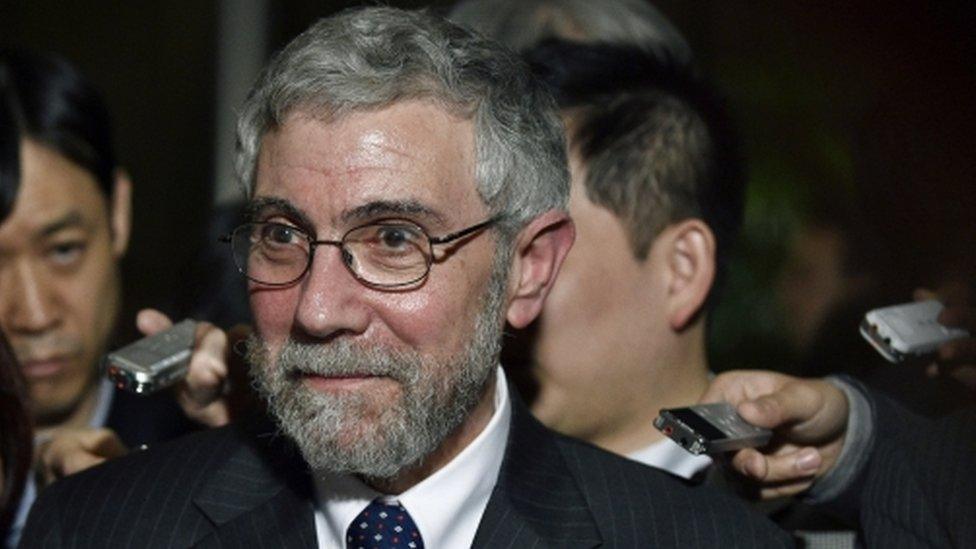
Paul Krugman says the US election will be about voters' sense of identity
The economist Paul Krugman wrote a few days ago, external that in the US "it is going to be mostly an election about identity. The Republican nominee [Donald Trump] represents little more than the rage of white men over a changing nation".
It is an era when parties can count far less on core supporters heeding the call of leaders. Loyalty has to be earned time and time again.
Labour is in the process of defining its brand - how does it appeal to social liberals, to socially conservative parts of its former heartlands, to the diversity of modern Britain?
Now, with just over a week to voting, the Remain camp has essentially turned to Labour and said the outcome of the referendum may depend on Labour getting out its traditional supporters.
- Published13 June 2016
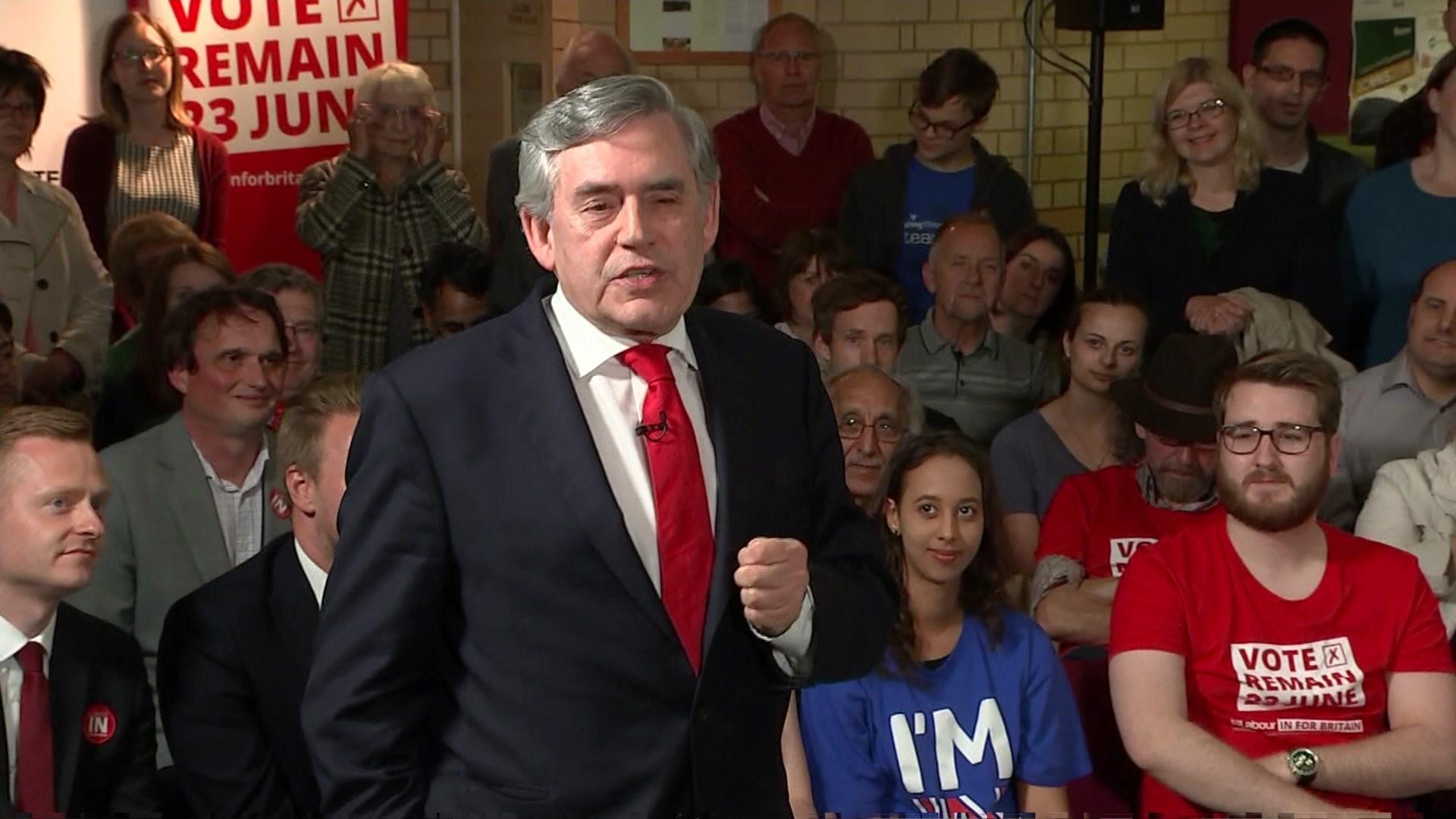
- Published11 June 2016
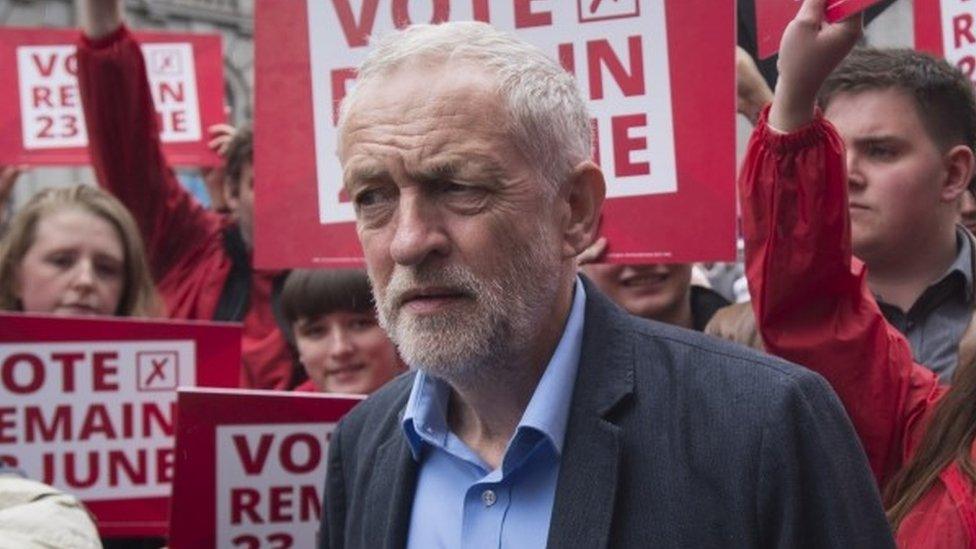
- Published5 June 2016
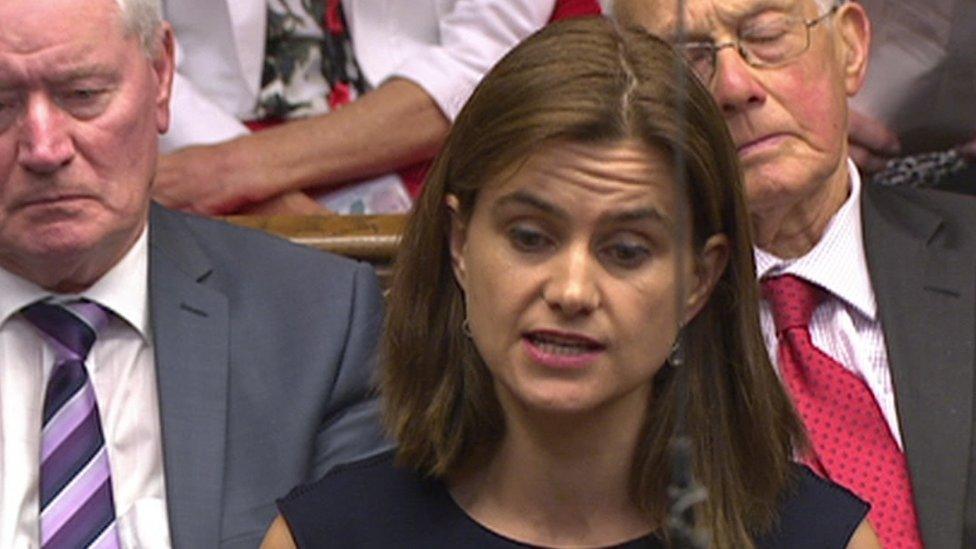
- Published30 December 2020

- Published29 April 2016

